Oh My Ghost (2015) is a Korean romantic comedy with a supernatural twist that offers a fresh take on the classic love story. Blending rom-com charm with ghostly mischief, it follows a shy young woman who literally gets spirited into a bolder new life.
The series explores themes of love, regret, redemption, and personal growth against the backdrop of an otherworldly romance. Expect a warm, funny, and occasionally poignant journey as the drama balances lighthearted laughs with heartfelt lessons about letting go and moving on.
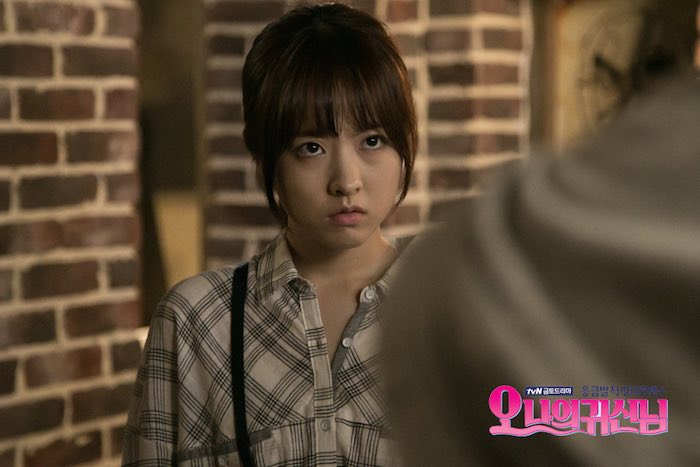
Jump to:
📖 Synopsis (Spoiler-Free)
Na Bong-sun is an extremely timid assistant chef at a popular restaurant. Possessing low self-esteem and the ability to see ghosts (thanks to her shaman grandmother), Bong-sun mostly lurks in the kitchen shadows. Enter Shin Soon-ae, a feisty young virgin ghost with unfinished business in the romance department.
Dying before ever experiencing love, Soon-ae believes she must lose her virginity to “resolve her grudge” and move on to the afterlife. Spotting Bong-sun as the perfect vessel for her goal, the lustful spirit jumps into our meek heroine’s body, turning Bong-sun from wallflower to firecracker overnight.
Bong-sun’s secret crush is her boss: star chef Kang Sun-woo, a cocky culinary genius nursing a broken heart. Suddenly confronted with Bong-sun’s drastic personality change, from mousy and polite to confident and flirtatious, Sun-woo is perplexed yet intrigued.
As “possessed” Bong-sun (with Soon-ae’s bold persona) starts catching Sun-woo’s eye, a most bizarre love triangle unfolds among one man, one woman, and one sassy ghost. Meanwhile, beneath the comedy and budding romance, there’s an undercurrent of mystery: Soon-ae’s death was not as simple as it seems, and uncovering the truth forms a compelling subplot without spoiling the fun.
Can Bong-sun reclaim her life and courage? Will Soon-ae fulfill her last wish? The drama entices you to watch these questions play out with plenty of laughs and no spoilers given here.
🎬 Production Details
Director & Writer: Oh My Ghost is directed by Yoo Je-won and written by Yang Hee-seung, the talented duo behind the hit “High School King of Savvy” (2014).
Their collaboration shines in how they mix comedy with touching moments, a signature that later shows up in Yoo Je-won’s other popular works (Hi Bye, Mama!; Hometown Cha-Cha-Cha). Yang Hee-seung’s screenplay deftly balances witty romance with supernatural lore, a skill she also brought to future beloved dramas like Weightlifting Fairy Kim Bok-joo (2016).
Fun trivia: Because this writer-director team had worked with actor Seo In-guk in their previous project, he makes a cheeky cameo appearance in Oh My Ghost’s finale, a treat eagle-eyed fans will appreciate.
Cast: The series boasts a charismatic cast led by rising film star Park Bo-young as Na Bong-sun. This was Park’s much-anticipated return to K-dramas after a seven-year hiatus from TV, and she truly shines.
Renowned for films like Scandal Makers (2008) and A Werewolf Boy (2012), Park Bo-young brings Na Bong-sun to life with nuance – oscillating between sheepish innocence and sultry confidence when possessed. Her dual-role performance earned critical praise and even a Best Actress award.
Starring opposite her is Jo Jung-suk as Chef Kang Sun-woo, delivering a deft performance as the arrogant-yet-endearing leading man. Jo Jung-suk, known from films (Architecture 101) and later beloved in dramas (Jealousy Incarnate, Hospital Playlist), infuses Sun-woo with comedic timing and genuine warmth, making the chef’s gradual softening utterly believable.
The ghostly scene-stealer is Kim Seul-gi as Shin Soon-ae. A former SNL Korea comedienne, Kim Seul-gi’s energetic portrayal of the “lustful virgin ghost” is both hilarious and heartfelt. She bounces between cheeky seductress and sympathetic soul seamlessly, earning her a Best Supporting Actress win at the DramaFever Awards for this role.
Rounding out the main quartet is Lim Ju-hwan as Choi Sung-jae, Sun-woo’s kind police officer brother-in-law. Lim Ju-hwan (from Tamra the Island and later The Bride of Habaek) delivers a subtle performance that becomes increasingly intriguing as the story progresses (he handles some dark, complex scenes with aplomb, but we’ll avoid spoilers!).
Notably, Oh My Ghost’s ensemble features several now-familiar faces: actress Shin Hye-sun appears in a supporting role as Sun-woo’s sister, years before her breakout leading roles, and Kang Ki-young adds comedy as a fellow chef, long before becoming a scene-stealing sidekick in dramas like What’s Wrong with Secretary Kim.
The chemistry among the cast is superb, and their interactions (from kitchen banter to supernatural shenanigans) create a lovable, lived-in world.
Network & Episodes: This drama aired on tvN (a cable network known for trendy hits) in the summer of 2015, running for 16 episodes. Each episode is about an hour long, and the show originally occupied the Friday-Saturday 8:30 PM slot, making it a prime weekend treat for viewers.
Despite being on cable, Oh My Ghost quickly gained a strong following (as we’ll see in the reception, its ratings climbed impressively). With tvN’s production quality behind it, the series delivers a cinematic feel, from its vibrant restaurant sets to its spooky ghost effects.
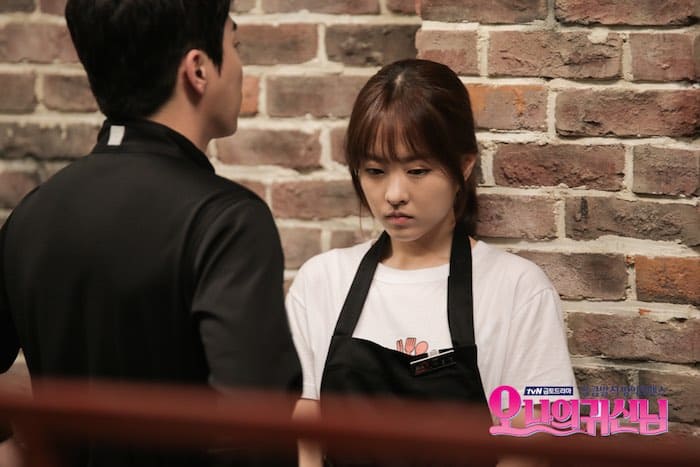
🧩 Detailed Analysis
Plot Development
At its heart, Oh My Ghost is a genre-blending story that unfolds with a careful balance of humor, romance, and suspense. The premise itself is a winner, a timid girl possessed by a flirty ghost and the execution feels fresh and engaging.
The early episodes lean into cute comedy and character setup, establishing Bong-sun’s awkward life and Soon-ae’s cheeky haunting with plenty of laughs. Some viewers may find the opening a tad slow-burning, but fear not: the pace soon picks up, and by mid-series the plot thickens with emotional depth and even thriller elements.
The drama skillfully navigates scary beats, laugh-out-loud moments, and heartfelt scenes in a natural flow. One minute you’re chuckling at Soon-ae’s outrageous attempts to seduce men via Bong-sun, and the next you’re on the edge of your seat as clues about Soon-ae’s mysterious death emerge.
This tonal blend could have felt jarring, but here it’s surprisingly cohesive. The rom-com storyline (will Bong-sun/Soon-ae win Sun-woo’s heart?) proceeds alongside the supernatural mystery (what really happened to Soon-ae?) without one overshadowing the other.
By the final act, the show shifts gears into full-on poignant drama, resolving both threads in a satisfying way. In fact, the penultimate episodes deliver some of the most “gripping and genuinely emotional” scenes, seamlessly tying together comedy and tragedy.
It’s a testament to the writing that a story which starts as a playful ghost-possession romp can later bring tears and chills, all earned through solid buildup. Overall, Oh My Ghost’s plot is admirably paced and original in concept, giving viewers a bit of everything: sweet romance, spicy comedy, spooky suspense, and a touching resolution.
Characterization & Performances
The characters in Oh My Ghost are richly drawn and brought to life by outstanding performances. Park Bo-young’s portrayal of Bong-sun is a highlight, she convincingly plays both the mousy, introverted Bong-sun and the confident, racy version of Bong-sun when Soon-ae takes over.
Her shifts in expression, voice, and body language make it easy to tell who’s in control at any moment, showcasing impressive range.
It’s delightful (and often hilarious) to see Bong-sun’s coworkers react as this once-invisible girl suddenly starts strutting and speaking informally to her boss! Park’s commitment to the dual role won her critical acclaim, and you can see why she delivers timid sweetness, comedic physicality, and gut-wrenching emotion all in one package.
Jo Jung-suk as Chef Sun-woo provides the perfect counterbalance. Initially, Sun-woo is arrogant and oblivious, but Jo Jung-suk infuses him with such nervous, goofy charm that he’s impossible to dislike.
From his incredulous double-takes at Bong-sun’s bold new attitude to his gradual vulnerability as Sun-woo falls in love, Jo’s performance is nuanced and endearing. He nails the “straight man” role amid the chaos, giving Sun-woo an authentic personal growth arc (and some hilarious nervous tics that feel human).
Kim Seul-gi’s Soon-ae is the story’s spark plug. As a ghost on a mission, she’s brash, lovable, and at times surprisingly poignant. Kim’s comedic timing is impeccable, whether she’s shamelessly flirting or bickering with the shaman, she steals every scene.
Yet she also conveys Soon-ae’s underlying loneliness and desperation, especially in quieter moments when the ghost’s bravado cracks.
The womance (female friendship) between Soon-ae and Bong-sun is a joy; even though they share one body, their bond feels real, leading to some heartfelt exchanges as they start caring about each other. (Fun fact: Park Bo-young and Kim Seul-gi’s on-screen chemistry was so great that they won a “Best Chemistry” award as a duo in tvN’s awards!).
The supporting characters leave a mark too. Lim Ju-hwan deserves praise for his performance as Sung-jae, he manages to be gentle and kind in one scene and chillingly intense in another, adding a layer of intrigue to the show.
The kitchen crew (Kang Ki-young, Kwak Si-yang, Oh Eui-shik, etc.) provide a lot of comic relief with their petty rivalries and bro-like camaraderie, each character growing more likable as the episodes progress.
Even side characters like the quirky shaman lady (Lee Jung-eun as Seobinggo) and Sun-woo’s sassy mother (Shin Eun-kyung) get their moments to shine.
All in all, Oh My Ghost delivers memorable characters and the cast’s infectious chemistry makes their relationships, be it romance, friendship, or ghostly mentorship, truly resonate on screen.
Themes and Messages
Beneath the jokes and hijinks, Oh My Ghost offers thoughtful themes about life, love, and letting go. One prominent theme is regret and redemption.
Ghost Soon-ae embodies the idea of a soul stuck due to unfinished business, she regrets not living life fully, and through her journey we explore the importance of closure.
Her initial belief that losing her “ghostly virgin” status will free her is rooted in a Korean folk notion (the virgin ghost myth) that unmarried women’s spirits linger due to unfulfilled desires.
Without spoiling, the drama ultimately shows that what truly holds her back is deeper than that, touching on the need for truth and justice. For Bong-sun, the theme is self-confidence and identity. With Soon-ae’s help, she literally discovers a new side to herself, but the story wisely emphasizes Bong-sun’s own growth, she must learn to stand tall on her own, not just when possessed.
This raises gentle questions of consent and agency (after all, Bong-sun can’t remember some of “her” bold actions). The show doesn’t brush this aside; it delves into issues of trust and honesty in relationships.
In fact, when the truth of the possession comes to light, the characters grapple with betrayal and forgiveness, reinforcing that actions have consequences, a rare theme in romantic comedies, but handled here with maturity.
Themes of love and acceptance course through the narrative: romantic love, yes, but also familial love (Sun-woo’s caring yet overbearing mother, Soon-ae’s grieving father), and friendship (the kitchen team’s camaraderie, Bong-sun and Soon-ae’s sisterly bond).
The message that love involves understanding the whole person, flaws, secrets, and all, rings loud and clear. Additionally, there’s a poignant exploration of moving on versus holding on.
As a ghost, Soon-ae literally cannot move on to the next realm; in the living world, characters like Sun-woo and Bong-sun are also “stuck” in the past (Sun-woo with his ex, Bong-sun with her insecurities).
The drama suggests that coming to terms with the past, be it through closure, forgiveness, or facing the truth, is the key to peace. And in a spiritual sense, it portrays a comforting idea that the departed need closure just as the living do.
Lastly, the show sprinkles a message about living life boldly. Bong-sun’s journey from timid to confident encourages viewers to come out of their shell and not let opportunities slip by.
By the end, Oh My Ghost manages to impart lessons on cherishing life, taking courage in love, and finding closure for one’s regrets, all delivered in a way that feels in sync with the story’s comedic-supernatural tone rather than preachy.
Cinematography and OST
Cinematography: Visually, Oh My Ghost is a treat. The director employs a bright, clean aesthetic for the everyday scenes, especially in the bustling kitchen of Sun Restaurant where much of the action takes place.
The cooking scenes are nicely shot, but a warning: delicious food shots abound, with vivid colors that make the dishes pop (you’ll almost smell the pasta and Korean fusion creations through the screen). This warm visual style contrasts effectively with the drama’s spookier sequences.
When ghosts appear or supernatural events occur, the cinematography shifts: lighting dims, camera angles get more dramatic, and there’s occasionally a subtle blur or glow to signal ghostly presence.
Without heavy CGI, the show manages to make Soon-ae’s spirit scenes believable, often, Kim Seul-gi appears normally, which actually emphasizes how human and relatable this ghost is.
Only when she does her “possession jump” or when shamans are involved do we see flickers of ethereal effects. There are a few brief “horror” shots (like a creepy dark hallway or a sudden ghost reveal) that give a fun jolt, but nothing gory or truly terrifying, the visuals stay firmly in rom-com territory with a side of whimsy.
Notably, the camera loves its cast: Park Bo-young’s expressive face is often in gentle close-up, highlighting Bong-sun’s emotional beats, and Jo Jung-suk’s comedic reactions are perfectly framed to elicit laughter.
The scenic locales, from cozy restaurant interiors to beautiful riverside spots (one particular farewell scene by the river is gorgeously shot and will tug your heartstrings), enhance the mood.
Overall, the cinematography strikes a pleasant balance between light and dark, much like the story itself, giving the audience a visually engaging experience that complements the narrative.
OST: The original soundtrack of Oh My Ghost is the cherry on top, elevating both its cheerful and melancholic moments. Interestingly, the drama’s background score leans heavily on jazz and acoustic pieces, including a lot of light piano melodies.
This sets it apart from many K-dramas that use trendy pop songs. The jazzy piano tunes create a whimsical, slightly retro atmosphere during comedic scenes and day-to-day montages, almost as if the music itself is winking at you.
When romance heats up, the OST brings in soft ballads and acoustic love songs that are sweet but not overly sappy.
In fact, Oh My Ghost was noted for discussing passion more openly than typical K-dramas, and its music follows suit, some tracks have a flirty, playful vibe fitting the story’s more ahem amorous ghostly goals. During emotional climaxes, the soundtrack swells with heartfelt instrumentals that never fail to prompt goosebumps (or tears).
And let’s not forget the spooky-cute sound effects whenever Soon-ae does something ghostly; the OST has little quirky pieces that underline the supernatural hijinks perfectly.
One standout song from the OST is “Leave” (떠나지마) by vocalist Park Bo-ram, a touching ballad that often plays in poignant scenes, adding depth to the characters’ feelings. On the lighter side, tracks like “힘내요 (Cheer Up)” carry the drama’s optimistic tone.
What’s admirable is that the OST doesn’t overwhelm; there are even stretches with just ambient sound or minimal music, allowing the actors’ performances to shine.
But when the music comes in, it absolutely amplifies the mood, be it a romantic rooftop encounter or a suspenseful revelation. By the end, you might find the musical motifs stuck in your head, each tied to a memory of a scene that made you laugh or cry.
In short, Oh My Ghost’s music is pleasantly understated yet effective, enhancing the storytelling from the background in all the right ways.
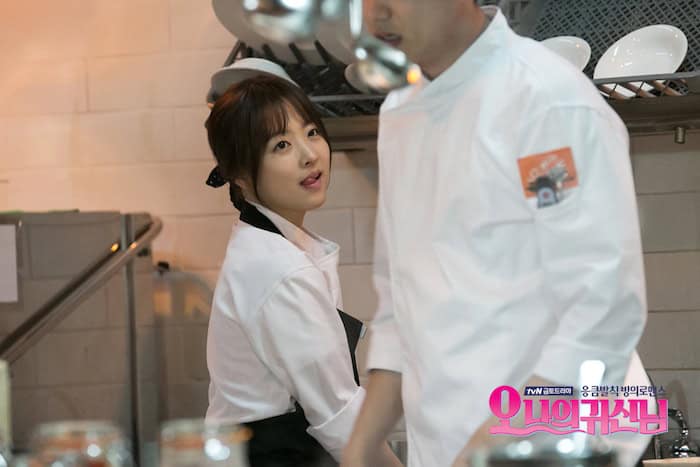
🌏 Cultural Context
One of the delights of Oh My Ghost is how it weaves in Korean cultural elements, giving depth to its fantasy premise and setting. Central to the story is the concept of ghosts lingering due to unfinished business, which is rooted in Korean folklore.
In particular, Soon-ae is portrayed as a “virgin ghost” (처녀귀신, cheonyeo gwishin), a common figure in Korean legends described as the spirit of a young woman who died before marriage and thus harbors lingering regrets.
This trope is playfully used to drive the plot (Soon-ae’s quest to resolve her “virgin grudge” by finding a man), but it’s also an authentic nod to how traditional Korean culture views restless spirits. Virgin ghosts are often depicted with long hair and white hanbok, full of sorrow or vengeance.
Oh My Ghost gives this myth a modern, even feminist twist: Soon-ae may start focused on sex as her ticket out of limbo, but her journey reveals deeper desires like justice, love, and farewell.
The shamanism aspect is another cultural touchstone. Bong-sun’s grandmother is a shaman, which explains Bong-sun’s lifelong ability to see ghosts. Korea has a rich history of shamanism (무속신앙), and shamans, or mudang, are believed to mediate between spirits and the living.
In the drama, we see shamans perform rites and chase ghosts, notably, a shaman (affectionately called Seobinggo) is the one ghost Soon-ae fears. There’s a dramatic/funny scene where Soon-ae, while possessing Bong-sun, flees an exorcism attempt, highlighting the tug-of-war between a ghost’s agenda and the shaman’s duty.
The show treats shamanism with a mix of respect and humor, reflecting its place in modern Korea: many people are secular, yet shamanistic beliefs still linger (for example, characters will visit a fortuneteller for advice or worry about karmic retribution).
The restaurant setting opens a window into Korean work culture and food culture. Sun Restaurant’s kitchen operates like a family (or a little military unit!). We see the hierarchy – Chef Sun-woo is the top dog, sous-chefs and line cooks beneath him, each addressing him as “Chef” (in English) or “Chef-nim” with respect. The drama does a great job portraying the teamwork and discipline typical in a professional kitchen.
There’s lots of bowing, chorus-like “Yes, Chef!” responses (which even sparked a meme among fans, as seen by one reviewer’s comical “YES CHEF” repetition), and after-hours bonding over food and soju. Through Bong-sun’s passion for cooking, we also glimpse how important food is in Korean culture, not just for sustenance but as a way of expressing oneself.
Bong-sun incorporates her grandmother’s temple cuisine knowledge (like making her own kimchi or special stews), reflecting the integration of tradition in modern dining. Sun-woo’s menu includes fusion dishes (he even opens a small Korean-fusion bistro in the story), indicating the contemporary trend of blending East/West flavors.
And of course, there’s communal eating: one recurring element is how the staff all sit down to enjoy family meals and how food can bring comfort (for instance, Sun-woo’s caring side shows when he cooks for someone feeling down).
If you pay attention, you’ll also catch bits of Korean language politeness, Bong-sun initially speaks in very formal language due to her timid nature, while Soon-ae in Bong-sun’s body shocks everyone by suddenly using casual speech (banmal) to her boss (a big no-no in Korean work etiquette unless you’re really close).
This cultural detail not only creates humor but also underlines the characters’ relationships and the society’s emphasis on respect and hierarchy.
🔄 Comparisons to Similar K-Dramas
If Oh My Ghost tickles your fancy, you’ll be pleased to know it’s part of a charming subgenre of ghostly K-dramas. A frequently mentioned cousin is Master’s Sun (2013), another romantic comedy where the female lead sees ghosts.
Like Oh My Ghost, Master’s Sun mixes scares with sweetness, Gong Hyo-jin’s character is haunted (literally) until she finds safety touching So Ji-sub’s prickly hero, making for a heartfelt and spooky courtship.
Both dramas feature ghost-seeing heroines and initially skeptical heroes, and they excel in comedic bickering and growth through supernatural challenges.
Fans often debate which they like better, but if you enjoy one, the other is a safe bet. On the spookier end, there’s The Ghost Detective (2018), which trades rom-com for a more intense thriller vibe.
It involves a detective teaming up with a ghost to solve crimes, definitely more chills and mystery, but still a human-ghost partnership at its core. While Oh My Ghost stays mostly light, The Ghost Detective offers a darker, twistier exploration of restless spirits (so check it out if you prefer ghost stories with a crime-solving twist and less emphasis on humor).
For those who loved the romance-with-ghost angle, Hotel Del Luna (2019) is a must-watch contemporary. Starring IU as an otherworldly hotel owner for ghosts, it delivers fantasy visuals and an emotional backstory for its lead spirit.
The tone is a bit different, more dreamy and lore-heavy, but it similarly explores themes of unfinished business and features a touching love story across the living and dead divide.
Hotel Del Luna also shares a cultural streak, packed with folklore references like Oh My Ghost (plus, it has a female ghost lead who’s as headstrong as Soon-ae, though in a very different context).
Another fun comparison is Bring It On, Ghost (2016) (also known as Let’s Fight, Ghost). This one inverts the premise: a ghost girl teams up with a boy who can see spirits, and yes, romance ensues.
It’s collegiate, cute, and has more action (ghost-busting fights!), if you liked the comedic and action-lite ghost elements of Oh My Ghost, this show amps that up with a youthful twist.
And while it’s not about romance, honorable mention goes to Sell Your Haunted House (2021) where Jang Na-ra plays an exorcist, it’s another example of Korea’s ghost genre range, blending business with banishing spirits, and might appeal if you found the shaman scenes in Oh My Ghost interesting.
In the realm of ghostly K-drama heroines, Oh My Ghost really set a template that later shows riffed on: the mix of comedy, heart, and supernatural. It stands out by making the ghost a co-lead rather than just a side character or plot device. In comparison, Master’s Sun had multiple ghosts of the week that helped the leads grow, whereas Oh My Ghost sticks to one ghost’s story deeply intertwined with the heroine’s arc, arguably giving it more emotional focus.
Hotel Del Luna is perhaps the most comparable in emotional weight, with an entire establishment of ghosts learning to move on, but its tone is more melancholy and fantastical. If we look at Hi Bye, Mama! (2020), another ghost-themed drama, we see a more family-centric, tearjerker approach (a mother ghost returns for 49 days).
Each of these shows has a unique flavor: Oh My Ghost remains the breezy rom-com with a side of paranormal, Master’s Sun the spooky romantic melodrama, Bring It On, Ghost the teen comedy-horror, and Hotel Del Luna the lavish fantasy romance.
The good news is that if you enjoyed the ride with Bong-sun and Soon-ae, there’s a whole ghostly galaxy of K-dramas to explore, each with different ratios of scares to laughs.
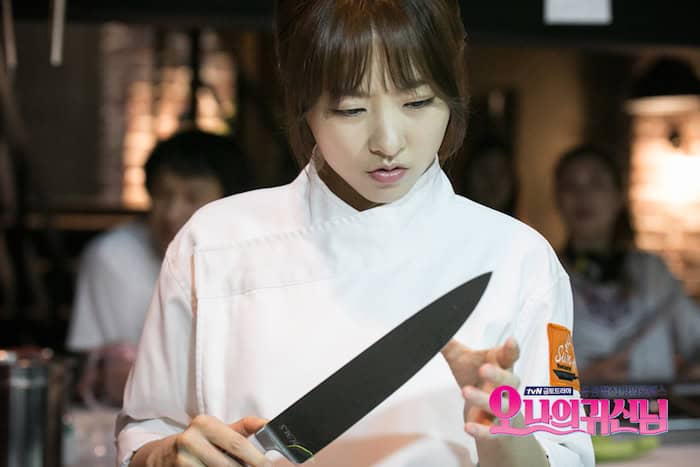
❤️ Personal Impressions
Watching Oh My Ghost feels like a well-cooked meal: warm, satisfying, and unexpectedly moving. Its quirky premise and light tone sit on a sincere backbone that treats every character’s feelings with care, so it’s easy to root for Bong-sun’s confidence, Sun-woo’s openness, and Soon-ae’s peace.
Emotional payoffs land especially well in the later episodes, with tear-tugging reveals and goodbyes balanced by brisk, genuine humor. A confession about the supernatural chaos and a moonlit lake sequence stand out as beautifully handled, linger-in-the-mind moments.
Flaws are modest. The mid-section can feel repetitive with the on-off possessions, and the ethics of the romance may cause a brief squirm, questions the show tackles directly, turning discomfort into tension that later pays off.
A few familiar K-drama tropes surface, including a touch of amnesia and a pining first love, and some side threads such as the police angle could use more depth. Even so, the series often subverts clichés or uses them for growth, which keeps the narrative tight and purposeful.
What endures is the chemistry and comedy: the kitchen crew’s banter, playful ghostly pranks, and symbolic beats like Bong-sun, while possessed by Soon-ae, striding in with new swagger.
The romance blossoms into something tender and convincing, buoyed by Park Bo-young and Jo Jung-suk’s unforced spark, while the Bong-sun and Soon-ae bond adds an empowering “girls support girls” pulse.
Altogether, strong acting, clever writing, and a heartfelt premise create a charming and emotionally resonant drama about finding the courage to live and love fully, enchanting from start to finish.
📊 Audience Reception
Oh My Ghost was both a critical and commercial hit, especially impressive for a cable TV drama. It started with modest viewership, but word-of-mouth quickly spread about its unique charm. Ratings climbed steadily throughout its run, from around 2.5% in the first episodes to a remarkable 7.3% viewership by the finale.
For context, those numbers were high for tvN in 2015, placing Oh My Ghost among the more successful cable dramas of that year. The show’s popularity wasn’t just in Korea; it gained a substantial international fanbase once streaming platforms picked it up. Many K-drama fans around the world discovered it on Netflix or Viki, leading to a surge of online buzz and recommendations.
On fan rating sites, the series enjoys glowing scores (AsianWiki users, for instance, rate it an impressive 96/100 based on thousands of votes). Viewers praise it for being a feel-good drama with a twist, and it often appears on “Top 10” lists for romantic comedies and supernatural series.
Critically, Park Bo-young garnered the most acclaim. She won Best Actress (TV) at the 4th APAN Star Awards for her role, a significant honor given APAN’s recognition across all Korean networks. The press even dubbed her Korea’s new “romantic comedy queen” as a result of this drama’s success.
Jo Jung-suk and Kim Seul-gi also received accolades: Kim Seul-gi snagged a Best Supporting Actress award as mentioned, and the duo of Park Bo-young & Jo Jung-suk was nominated (and often highly ranked by fans) for “Best Couple” in various award shows (their chemistry was that beloved).
Oh My Ghost itself won a “Best Content” award at tvN’s 10th anniversary awards, basically naming it one of the network’s standout productions. Another fun nod: at those awards, Park Bo-young and Kim Seul-gi won “Best Chemistry” for their ghost-human partnership highlighting how much viewers loved their dynamic.
The show’s international popularity led to some interesting outcomes. In 2018, Thailand produced a remake of Oh My Ghost (with the same title), adapting the story for a Thai audience, a clear sign that the plot had wide appeal. (The remake did fairly well in Thailand, indicating the core concept resonates universally.)
Additionally, the drama was frequently recommended on global forums and social media; in fact, you might recall seeing it trend on Reddit’s r/KDRAMA or in Facebook fan groups whenever someone asked for a good rom-com, Oh My Ghost would inevitably be mentioned as a “must-watch, even if you’re not into ghosts” kind of show.
Over the years, it has maintained a cult favorite status. While newer flashy dramas come and go, Oh My Ghost retains a timeless quality, new fans keep discovering it and falling in love with its quirky charm. Long-time K-drama viewers often have a soft spot for it, citing it as “one of the first K-dramas that perfectly mixed comedy with the paranormal in a romantic story.”
Another measure of its reception is how it boosted its stars’ profiles. Park Bo-young, already a film star, saw her demand for TV roles skyrocket (she went on to headline Strong Girl Do Bong-soon, another big hit). Jo Jung-suk’s popularity rose as well; he became known as a reliable leading man and later led hits like Hospital Playlist. Kim Seul-gi became a sort of icon for spunky supporting roles; many wanted to see her as a lead because she nearly stole the show here.
Even in the K-drama community, Oh My Ghost is often fondly remembered for its rewatch value, it’s the kind of series fans say they rewatch when they need a pick-me-up or something comfy with a bit of everything. Its ability to evoke laughter and tears upon rewatch is frequently noted, a true sign of a well-crafted show.
In summary, Oh My Ghost not only performed strongly in ratings and awards during its run, but it also left a lasting impression on audiences. It converted many newcomers into K-drama fans and further cemented tvN’s reputation for quality rom-coms.
If audience reception is any indication of a show’s quality, then the love and acclaim Oh My Ghost continues to receive should assure you that this is a crowd-pleaser with heart.
From critics praising its “fresh mix of sweet romance, crime drama and supernatural comedy” to fans gushing over the cast’s chemistry, this drama hit the right notes. Even now, years later, you’ll see it recommended frequently, a testament to its enduring appeal.
✅ Conclusion
In conclusion, Oh My Ghost is a spirited romantic comedy in every sense, a drama with a soul (or two!). It delivers a delightful blend of humor, heart, and supernatural spice that can appeal to a wide range of viewers.
If you’re someone who loves rom-coms but also craves a fresh twist, this show is made for you. Expect to laugh out loud at the absurd situations (a ghost playing matchmaker with the body she’s possessing leads to some truly hilarious antics) and swoon at the genuine romance that unfolds.
The love story is sweet and slow-burn, building up as Sun-woo learns to see beyond Bong-sun’s meek exterior (with a little ghostly help). Yet, this drama also surprises with touching reflections on life and death, making it more than just a fluffy comedy. You’ll likely get emotionally invested, perhaps shedding a tear as secrets are revealed and characters find closure.
Oh My Ghost comes warmly recommended for fans of romantic comedies, especially those who enjoyed titles like Master’s Sun or Strong Woman Do Bong-soon (imagine a similar fun vibe, but with added ghostly charm). It’s also a fantastic choice if you’re new to K-dramas.
The series is very accessible: it’s well-paced, not overly long, and balances its Korean cultural context with universal themes of love and courage.
Those intrigued by supernatural elements but who don’t usually watch horror will find this drama comfortably mild on scares and high on endearing fantasy. On the flip side, if you generally go for thrillers or heavy melodramas, Oh My Ghost might surprise you with its depth beneath the comedy, it could be a refreshing palate cleanser in between darker shows.
Ultimately, this drama is for anyone seeking a heartwarming story with a side of whimsy. It’s like a bowl of your favorite stew with an unexpected kick, comforting and exciting all at once.
The performances (Park Bo-young’s especially) will draw you in, the ghostly plot will keep you guessing without stress (no big twists are spoiled here, so you can enjoy the reveals!), and the happy vibes will leave you in a good mood.
By the end, Oh My Ghost wraps up in a satisfying way that reaffirms love in all its forms, romantic love, friendship, and family, and even gives a lovely send-off to our dear ghost.
So, if you’re ready for a ride full of laughs, light suspense, and lots of heart, give Oh My Ghost a try. It’s a drama that proves sometimes the afterlife can bring new life to a love story.
Highly recommended for a fun binge, a cozy date night in, or simply whenever you need a lift to your spirits (pun intended). Enjoy this charming haunt, it’s an easy one to love, and who knows, it might just become one of your favorites too!

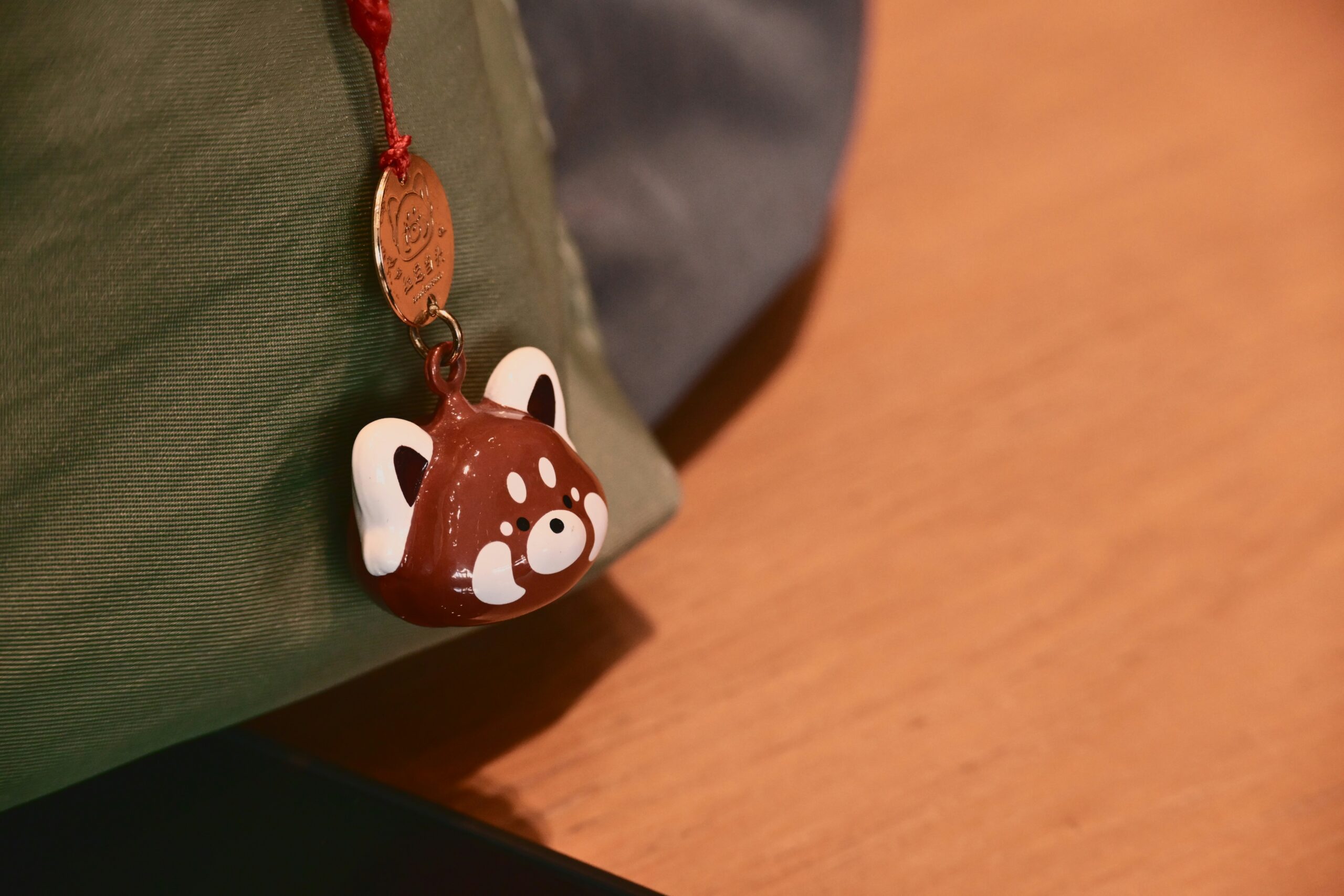
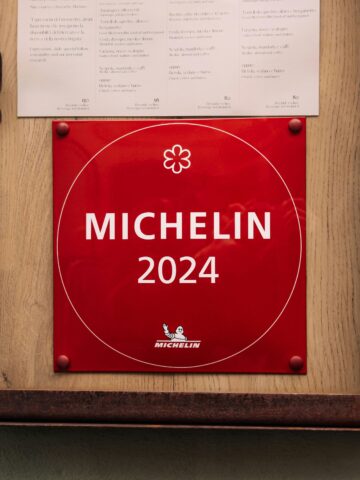


Comments
No Comments